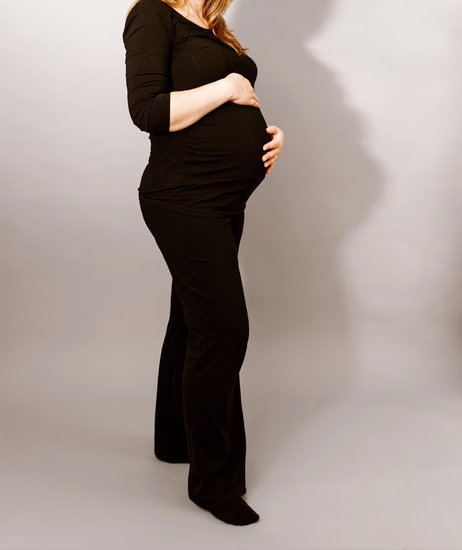Pregnancy is a beautiful and transformative time in a woman’s life, but it can also come with its share of discomforts, one of which is hemorrhoids. Hemorrhoids during pregnancy are a common issue that many women experience, but it can be both painful and embarrassing to talk about.
In this article, we will explore the causes, symptoms, prevention, and medical treatment options for hemorrhoids during pregnancy. We will also provide tips for coping with hemorrhoids and discuss their impact on pregnancy and delivery.
Hemorrhoids during pregnancy are more common than you might think. The increased pressure on the pelvic area due to the growing fetus, as well as hormonal changes, can contribute to the development of hemorrhoids. Understanding why they occur and how they can be managed is essential for pregnant women who may be experiencing this discomfort.
In this section, we will delve into the details of what hemorrhoids are, why they tend to occur during pregnancy, and how they can affect a woman’s overall well-being during this special time in her life. We will also discuss some common misconceptions about hemorrhoids during pregnancy and provide valuable information on how to seek proper medical help if needed. Stay tuned for an informative journey through the world of hemorrhoids during pregnancy.
Causes and Risk Factors of Hemorrhoids During Pregnancy
During pregnancy, a woman’s body undergoes numerous changes, and some of these changes can increase the risk of developing hemorrhoids. The main cause of hemorrhoids during pregnancy is the increased pressure on the pelvic blood vessels and the rectum as the uterus expands to accommodate the growing baby. This pressure can lead to swelling and bulging of the veins in the rectal area, resulting in hemorrhoids.
Another contributing factor to the development of hemorrhoids during pregnancy is hormonal changes. The increase in hormone levels, particularly progesterone, can relax the walls of blood vessels, making them more susceptible to swelling and inflammation. Additionally, constipation is a common problem during pregnancy due to hormonal changes and the pressure exerted by the growing uterus on the intestines. Straining during bowel movements as a result of constipation can also contribute to the development of hemorrhoids.
Furthermore, genetics may play a role in predisposing some women to develop hemorrhoids during pregnancy. If a woman has a family history of hemorrhoids or has had previous experiences with this condition, she may be more likely to develop them during pregnancy. It is important for pregnant women with a family history of hemorrhoids to take preventive measures and seek early treatment if needed.
Overall, understanding the causes and risk factors associated with developing hemorrhoids during pregnancy can help expectant mothers take necessary precautions and steps to prevent this uncomfortable condition from occurring. It is essential for pregnant women to be aware of these factors and be proactive in managing their risk of developing hemorrhoids.
| Causes | Risk Factors |
|---|---|
| Increased pressure on pelvic blood vessels and rectum | Hormonal changes |
| Constipation | Genetic predisposition |
Symptoms of Hemorrhoids During Pregnancy
Hemorrhoids are a common issue during pregnancy, affecting about 50% of expectant mothers. The growing uterus puts pressure on the pelvic veins and the inferior vena cava, which can lead to hemorrhoids. These swollen and inflamed veins in the rectum can cause discomfort, pain, itching, and bleeding.
One of the most common symptoms of hemorrhoids during pregnancy is pain or discomfort during bowel movements. This can be due to the swelling and inflammation of the hemorrhoidal veins near the anus. Pregnant women may also experience itching around the anal area, as well as small amounts of bright red blood on toilet paper after wiping.
In addition to these physical symptoms, pregnant women with hemorrhoids may also feel a lump or bulge near the anus. This can be particularly uncomfortable and may cause a sensation of fullness or even cause difficulty sitting comfortably. If left untreated, these symptoms can persist or worsen throughout pregnancy and even postpartum.
| Symptoms | Frequency |
|---|---|
| Pain or discomfort during bowel movements | Common |
| Itching around the anal area | Common |
| Bright red blood on toilet paper after wiping | Common |
| Lump or bulge near the anus | Common |
Prevention and Home Remedies for Hemorrhoids During Pregnancy
During pregnancy, it’s crucial to take preventive measures and utilize home remedies to manage hemorrhoids. These uncomfortable and painful swellings in the veins around the rectum can occur as a result of increased pressure on the pelvic veins due to the growing uterus during pregnancy. Prevention and home remedies are essential in managing hemorrhoids during this critical time.
Preventive Measures
To prevent hemorrhoids during pregnancy, it’s important to maintain good bowel habits by keeping hydrated, eating a high-fiber diet, and staying physically active. Avoiding sitting or standing for long periods of time and taking breaks to walk or stretch can also help reduce the risk of developing hemorrhoids.
Home Remedies
Fortunately, there are many home remedies that can provide relief from hemorrhoids during pregnancy. Warm baths or sitz baths for 10-15 minutes several times a day can help alleviate discomfort and reduce swelling. Using unscented, alcohol-free wet wipes instead of toilet paper and applying cold packs to the affected area can also provide relief.
Dietary Changes
Making dietary changes such as increasing fiber intake through fruits, vegetables, whole grains, and beans can help soften stools and make them easier to pass, reducing strain on the rectal area. It’s important to avoid straining during bowel movements as this can exacerbate hemorrhoid symptoms. Staying hydrated with plenty of water is also crucial in preventing constipation and easing bowel movements.
By implementing these preventive measures and utilizing home remedies, pregnant individuals can effectively manage their hemorrhoids and minimize discomfort throughout their pregnancy.
Medical Treatment Options for Hemorrhoids During Pregnancy
Over-the-Counter Medications
For pregnant women experiencing discomfort from hemorrhoids, there are several over-the-counter medications available. These may include creams, ointments, suppositories, and pads that contain ingredients such as witch hazel or hydrocortisone. It is essential to consult with a healthcare provider before using any over-the-counter medications during pregnancy to ensure they are safe for both the mother and the baby.
Sclerotherapy and Rubber Band Ligation
In some cases, healthcare providers may recommend minimally invasive procedures such as sclerotherapy or rubber band ligation to treat hemorrhoids during pregnancy. Sclerotherapy involves injecting a solution into the hemorrhoid to make it shrink, while rubber band ligation involves placing a small rubber band at the base of the hemorrhoid to cut off its blood supply, causing it to shrink and fall off.
Hemorrhoidectomy
In rare cases where other treatments have been ineffective, a surgical procedure known as hemorrhoidectomy may be considered for pregnant women with severe hemorrhoids. However, this option is typically only recommended if the benefits outweigh the potential risks to both the mother and the baby.
It is crucial for pregnant women experiencing hemorrhoids to discuss their symptoms and treatment options with their healthcare provider. Together, they can develop a comprehensive treatment plan that ensures both maternal comfort and fetal safety.
Coping With Hemorrhoids During Pregnancy
During pregnancy, women may experience hemorrhoids due to the increased pressure on the pelvic blood vessels and constipation. Coping with hemorrhoids during pregnancy can be challenging, but there are several tips for comfort and relief that expecting mothers can utilize.
One of the most effective ways to cope with hemorrhoids during pregnancy is to maintain good hygiene. This includes gently cleaning the affected area with a mild soap and water after each bowel movement. Additionally, using medicated pads or wipes containing witch hazel or aloe vera can provide soothing relief and reduce inflammation.
Another tip for coping with hemorrhoids during pregnancy is to practice good bathroom habits. Avoid straining during bowel movements by not sitting on the toilet for an extended period of time. It is also important to stay hydrated and consume a high-fiber diet to prevent constipation, as straining can worsen hemorrhoid symptoms.
Lastly, pregnant women dealing with hemorrhoids should consider using over-the-counter remedies such as sitz baths or applying ice packs to the affected area to alleviate discomfort. These methods can help reduce swelling and provide temporary relief from itching and pain associated with hemorrhoids pregnancy.
By implementing these coping strategies, pregnant women can find comfort and relief while managing their hemorrhoid symptoms during this crucial time in their lives. Seeking advice from healthcare professionals is also important for proper management of hemorrhoids during pregnancy, especially if the symptoms persist or worsen despite home remedies.
The Impact of Hemorrhoids on Pregnancy and Delivery
During pregnancy, hemorrhoids can have a significant impact on a woman’s overall experience. These swollen and inflamed veins in the rectum can cause discomfort, pain, and even bleeding, making this time even more challenging for expectant mothers. Here are some ways in which hemorrhoids can affect pregnancy:
1. Discomfort and Pain: Hemorrhoids can cause itching, burning, and general discomfort in the rectal area, making it harder for pregnant women to sit or move around comfortably.
2. Difficulty with Bowel Movements: The presence of hemorrhoids can make bowel movements painful and difficult, leading to constipation or worsening existing constipation issues during pregnancy.
3. Increased Stress: Dealing with the symptoms of hemorrhoids on top of the other physical discomforts of pregnancy can lead to increased stress and anxiety for expectant mothers.
There are several ways to help alleviate the impact of hemorrhoids on pregnancy and delivery, including:
With proper care and management, pregnant women can take steps to minimize the impact of hemorrhoids on their overall pregnancy experience.
Postpartum Hemorrhoids
After giving birth, many women may find themselves experiencing postpartum hemorrhoids. These swollen veins in the rectum can cause discomfort and pain, adding to the challenges of recovering from childbirth. It’s important to be aware of what to expect as you navigate this aspect of postpartum health.
Here are some common experiences and tips for managing postpartum hemorrhoids:
- Increased discomfort: After giving birth, the pressure on the rectal area from pushing during labor can exacerbate hemorrhoids, leading to increased discomfort and pain.
- Healing time: Postpartum hemorrhoids may take some time to heal, but there are steps you can take to promote healing and alleviate symptoms.
- Tips for relief: To ease discomfort, consider using over-the-counter topical treatments, taking sitz baths, and using cold packs to reduce swelling.
- Maintaining good hygiene: Keeping the rectal area clean is crucial for preventing infection and promoting healing. Use gentle cleansing wipes or a peri-bottle with warm water after using the bathroom.
It’s essential to remember that while postpartum hemorrhoids can be uncomfortable, they are a common occurrence after childbirth. By following these tips and being patient with the healing process, you can find relief from postpartum hemorrhoids.
When to Seek Medical Help for Hemorrhoids During Pregnancy
In conclusion, hemorrhoids during pregnancy can be a challenging and uncomfortable experience for many women. Understanding the causes, symptoms, and risk factors of hemorrhoids during pregnancy is crucial in seeking proper prevention and treatment options. While some cases of hemorrhoids can be managed at home with preventive measures and home remedies, it is important to recognize when medical intervention may be necessary.
Pregnant women experiencing severe or persistent symptoms such as excessive bleeding, extreme pain, or protruding hemorrhoids should not hesitate to seek medical help. These symptoms may indicate a more serious condition that requires professional attention. Additionally, pregnant women with pre-existing health issues such as diabetes or heart disease should consult their healthcare provider before trying any over-the-counter treatments for hemorrhoids during pregnancy.
Furthermore, postpartum hemorrhoids are also common and can cause discomfort after giving birth. It is important for new mothers to be aware of the symptoms and seek medical advice if they experience prolonged or severe postpartum hemorrhoid issues. By being proactive in seeking professional help when necessary, pregnant women can alleviate the discomfort of hemorrhoids and focus on enjoying a healthy pregnancy and delivery.
Frequently Asked Questions
How Can a Pregnant Woman Get Rid of Hemorrhoids?
A pregnant woman can get rid of hemorrhoids by practicing good bathroom habits, such as not straining during bowel movements and avoiding constipation. Using over-the-counter creams or pads, taking sitz baths, and maintaining a healthy diet with plenty of fiber and water can also help alleviate symptoms.
What Does a Pregnancy Hemorrhoid Look Like?
Pregnancy hemorrhoids typically appear as swollen veins in the rectal area. They may be itchy, painful, or even bleed during bowel movements. In some cases, they can be felt as a soft lump near the anus. It’s important to consult a healthcare professional for proper diagnosis and treatment.
Can Hemorrhoids Affect the Baby During Pregnancy?
Hemorrhoids themselves do not directly affect the baby during pregnancy. However, the discomfort and pain caused by hemorrhoids can lead to stress and anxiety for the mother-to-be, which may indirectly impact the developing baby. It’s crucial for pregnant women to address any health concerns with their healthcare provider for appropriate management and support throughout pregnancy.

Welcome to my fertility blog. This is a space where I will be sharing my experiences as I navigate through the world of fertility treatments, as well as provide information and resources about fertility and pregnancy.





